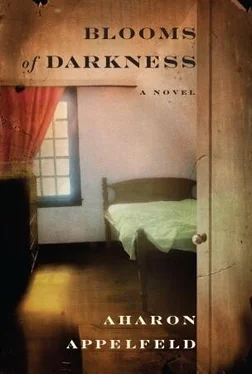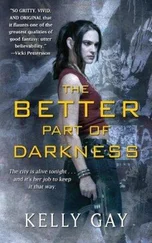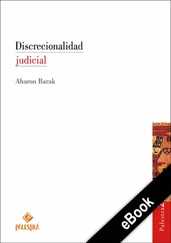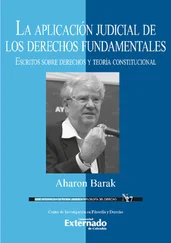“There were days as long as the underworld and days as short as a breeze,” says Hugo, glad that he found the words.
“I didn’t imagine I would be able to come here again,” his mother says.
“It’s impossible to forget summers in the Carpathians.” Language returns to Hugo.
“Thank God we’re together.”
“Do you believe in God?” Hugo is glad he can ask questions, and not only be the one asked. “Why do you ask?”
“In our earlier life, I never heard you say, ‘Thank God.’ ”
“My mother, your grandmother, would sometimes say, ‘Thank God.’ Now I allow myself to speak in her words. Is that a sin?”
Here Hugo’s father intervenes. He is dressed in his white suit, which gives a simple elegance to his height.
“One doesn’t easily acquire beliefs or change them,” he says. “I’ve remained as I was.”
“I can’t believe my ears,” says Hugo’s mother, and she raises her head.
“Did you change?” his father asks in a tone intended to relieve the tension in the air.
“It seems to me that we’ve all changed. You were in a labor camp for about two years, and you built the bridges over the Bug River. Hugo was with Mariana, and I worked like a slave in the fields. Could it be that all of this didn’t change us?”
“I feel that I’ve grown older, but not that I’ve changed,” replies Hugo’s father.
“As for me,” says Hugo, touching the cross on his chest, “this cross saved me.”
That statement makes his parents fall silent, and they stand in astonishment at their son’s words. It’s clear they won’t go on to ask what or why.
Mariana’s torments as she tries to dry out extend through the whole day. Every morning, after breakfast, Hugo hands her the bottle, and she takes a few long gulps, saying, “You’re my secret, you’re my elixir of life, you keep me alive.” For caution’s sake, she splashes perfume on her body and clothes. “No one will notice that I drank,” she says.
When Mariana is sad or depressed, it’s hard for her to restrain herself. “Just one sip,” she says, “and no more.” Hugo hands her the bottle, and she drinks and whispers, “Hide the bottle fast, so that I won’t see it.” And when her friends discover that she has had a drink, they rebuke her. “Have you sinned again?”
“Just a sip.”
“Be careful,” they warn, “Madam has a sense of smell like a dog’s.”
Sometimes her friend Kitty comes into her room. Kitty is very short, and she looks like a girl who ended up there by mistake on the way home from school. She is charming and cheerful, and she amuses her friends. She has, it seems, customers who are hers and hers alone.
Kitty likes to tell about her experiences, and she sometimes talks about them at length and in detail. Mariana and her friends don’t talk about theirs. Their impressions are usually summed up in a single word or a short sentence, A beast, disgusting, horrid; what do you expect from an unbridled bull? I feel like vomiting . Only rarely do you hear, He brought me a box of candy, he told me about his house in Salzburg .
Hugo learns from them that there is a special unit in the city that hunts down Jews. Every week they find a few. Mainly the Jews are executed, but some are interrogated and tortured until they reveal their friends’ hiding places. The Germans intend to kill them down to the very last one, Hugo hears, and he shivers.
One day the closet door opens, and Kitty is standing in the entrance. “I came to see you. Mariana has told me a lot about you.”
Hugo rises to his feet and doesn’t know what to say. “Good Lord, you’re my height. How old are you?”
“In a little while I’ll be twelve.”
“I’m twice your age, even a bit more. What do you do all day?”
“Nothing. What is there to do here?”
“Don’t you read? Jews liked to read, isn’t that so?”
“I think, and sometimes I imagine things.”
“Are you afraid?”
“No.”
“Mariana told me about you. She likes you.”
“And are you content here?” he dares to ask.
“This is my life,” she says with a simplicity that touches his heart. After a pause, she adds, “I’m an orphan. I’ve been an orphan for twenty years. This is my home. Here I have friends.”
“Don’t you have sisters?”
“I’m an only child,” she says and chuckles.
In the school where Hugo studied, there were some girls Kitty’s height, with the same look. But Kitty isn’t a girl. She reminds him, for some reason, of Frieda, who also had a girlish face. The last time he saw her, she was crushed among the deportees, waving her straw hat.
“Aren’t you bored?”
“No.”
“I would be bored. I need friends. You’re a good-looking boy, and it’s no wonder that Mariana likes you.”
“I help her.” Hugo tries to diminish his status.
“How?”
“In whatever way I can.”
“That’s good of you,” says Kitty. “I’ll come to visit you again. Now I have to go.”
“Did I disappoint you?”
“No. Not at all. You’re a good-looking, smart boy. I was curious and so I came to see you.” She smiles and locks the closet door.
Hugo takes out the Bible and reads the story of Joseph. He immediately visualizes Joseph as a slightly built prince, dressed in a striped coat. His brothers are earthy and coarse of spirit, and their eyes disclose that they are out to harm him. Strangely, Joseph ignores their plots. He is immersed in his princely world. Every time his brothers speak, he smiles, as though he has uncovered their dark interior. In his heart he knows that his brothers would not hesitate to murder him, but he ignores them purposely, and in so doing he expresses his contempt for them.
Reading and thinking about what he has read restores to Hugo, without his realizing it, some of the life he had lost. Before his eyes he sees his German teacher, a converted Jew, who used to formulate ideas clearly. Franz and Anna were his favorites. But it seems to Hugo that the dark days in the closet have secretly taught him things that he lacked, and that when school resumes, he, too, will be able to express his thoughts tersely, without getting tangled up in pointless details.
That little discovery pleases him.
The harvest is over. Wagons laden with straw roll along the dirt roads. Hugo sits and watches them. The more he looks, the more he knows that he once saw laden wagons like that during a golden summer along the Prut, but where it was and under what circumstances, he can’t remember. That forgetting pains him. Not long ago he saw his parents standing right next to him, at their full height, and now they are just passing shadows. Every time he tries to visualize them, they slip away or are covered with darkness. Their voices, too, which were bright and clear, have faded.
Mariana keeps saying — as always, with repressed anger — that her body can’t withstand this pressure for long. She speaks about her body as a being that she has no control over. Once she says to Hugo, “My body has calmed down a bit. Apparently it’s restrained itself.” Mainly she reviles it and calls it “loathsome flesh.” She speaks of her breasts as udders that have been milked without end. Once she surprises Hugo and says, “It’s no wonder the priest says, ‘Abandon flesh, for today it is here and tomorrow it is under the earth. Think about your soul and about the kingdom of heaven.’ ”
Every few days little Kitty comes in and asks how he is. Hugo’s hidden life makes her curious. “What do you think about?” she asks, and apparently she expects a long answer. Hugo tells her something that he hasn’t even revealed to Mariana. In the spring he saw his parents in his imagination, but now they have gone away from him. “What does that mean?” he asks.
Читать дальше












